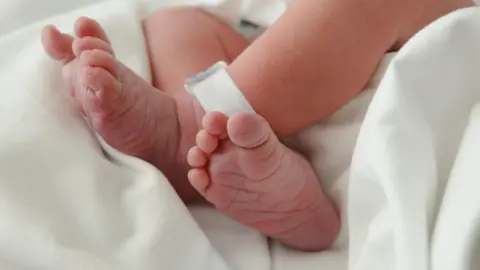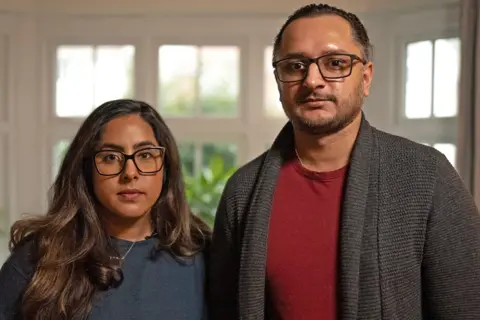In Spain, parents gather at school gates to remember Gaza’s child victims | Israel-Palestine conflict News
Granada, Spain – Sometimes there have been as few as two or three people, sometimes as many as 15.
But no matter the number, every morning for the past few weeks at the Jose Hurtado primary school in the Spanish city of Granada, a group of parents have dropped off their kids, then silently gathered nearby behind two simple but powerful pro-Gaza banners: “No more dead children” and “Against Genocide.”
“It started when a fictional video, set in 2040, came through one of our parents’ WhatsApp groups, about how Gaza was destroyed. And in it children ask their mums and dads – what did you do during the genocide?” Mar Domech, who helped the protest get started, told Al Jazeera.
“I began saying – instead of re-sending the video, let’s actually do something, a bit like during the pandemic when people used to applaud hospital staff at eight every night. And the 15 minutes before the kids went into class and the 15 minutes just after suited the majority of us parents the best.”
The protest format is simple. A single line of demonstrators hold up two long banners next to a tall school wall and make sure they keep out of the way of passers-by.
There is no shouting or chanting. But that these are clearly school parents caring about children dying – many of them of the ages of their own children – gives their show of support extra resonance. The school’s location on a busy arterial street near central Granada means their message reaches a wide audience.
“We don’t want to upset anybody, but we just can’t look away when so many children are dying and the laws need to be upheld,” said Domech. “What’s happening there is genocide and we have to oppose this, whoever the victims are.”
After almost two years of Israeli attacks, Gaza is home to the highest number of child amputees per capita. More than 17,000 children have been killed. And according to Save the Children, more than 930,000 children in Gaza – nearly every single child – are now at risk of famine.
The failure of more parents to join their show of solidarity is treated with a mixture of disappointment, resilience and not a little wry humour by the dozen or so “regulars”, like when they recall when two plainclothes police officers arrived to check their IDs.
It just so happened that day only two pro-Palestine parents were present, but, as Domech recalled with a laugh, thanks to the police turning up, it seemed like the number of protesters had abruptly doubled.
In any case, the limited response has done nothing to stop their determination to continue.
One woman passes by most days and stops to take a photo to send to a friend in Palestine. Some of the cars or tourists on buses going up to the nearby medieval Alhambra monument honk and wave in support.
The morale boosts are important, as well as the parents’ conviction that even this relatively tiny but tenacious protest matters.
“I couldn’t stand the idea of simply being an onlooker any more, what’s going on is so atrocious,” said Alberto, another parent. “I’m just pleased that we’ve kept going, too. I’m studying for civil service exams so time-wise I can be flexible, but it’s not straightforward to do this every day when you’re working or have other commitments. However, I think it’s fundamental we do it.”
Spain is among a small group of European nations that has consistently shown support for Palestine and criticised Israeli actions in Gaza and the occupied West Bank.
Together with Ireland and Norway, in May 2024, Spain recognised the Palestinian state and last year it expressed support for the genocide case against Israel submitted by South Africa in the International Court of Justice.
After the European Union’s latest report on Gaza was published this week, Spain was the one country that called directly for suspension of the EU-Israel Association Agreement, while its foreign minister demanded an arms embargo.
As for the Granada school gates protest, “We’ll go on with it once term restarts in September”, said Domech, “although hopefully that wouldn’t be necessary”.




